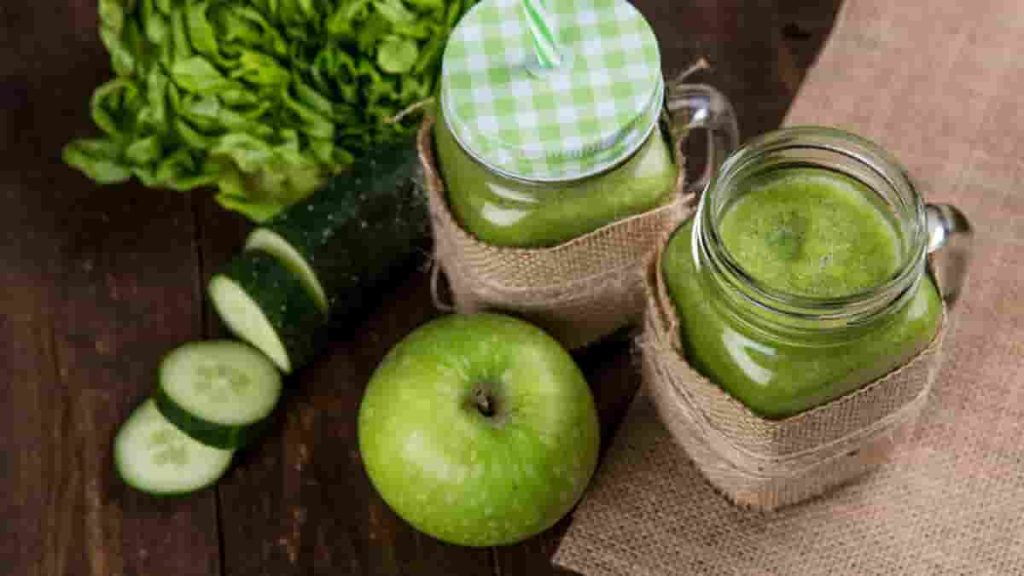Here is your complete guide to detoxifying breakfast.
Introduction to Detoxifying Breakfast
Are you ready to kickstart your day with a burst of energy and a refreshed body? Look no further than the world of detoxifying breakfast. A well-balanced breakfast packed with detoxifying ingredients can set the tone for a healthy day ahead. In this article, we’ll explore the top 10 detoxifying breakfast foods, the science behind detoxification, and provide you with FAQs, recipes, and more. Let’s dive right in!
The Science Behind Detoxifying Breakfast
- Our bodies naturally detoxify to eliminate waste and toxins.
- Eating the right foods can support this process.
Top 10 Detoxifying Breakfast Foods
1. Lemon Water

- Benefits: Aids digestion, alkalizes the body.
2. Green Smoothies: Detoxifying Breakfast

- Ingredients: Spinach, kale, cucumber, and more.
- Detox Benefits: High in fiber and antioxidants.
- Recipe Idea: Green Detox Smoothie (see Recipes section).
3. Overnight Chia Pudding: Detoxifying Breakfast
- Chia Seeds: Packed with fiber, omega-3s, and antioxidants.
- Recipe Idea: Chia Pudding (see Recipes section).
4. Avocado Toast
- Benefits: Good fats support liver function.
5. Oatmeal with Berries
- Berries: Rich in antioxidants.
- Recipe Idea: Berry Oatmeal (see Recipes section).
6. Detoxifying Teas
- Options: Green tea, dandelion tea, ginger tea, and more.
- Benefits: Promote detox and digestion.
7. Greek Yogurt with Honey
- Probiotics: Support gut health and digestion.
8. Flaxseed Smoothie
- Flaxseeds: Rich in omega-3 fatty acids and fiber.
- Recipe Idea: Flaxseed Smoothie (see Recipes section).
9. Quinoa Breakfast Bowl
- Quinoa: High protein and fiber content.
10. Detoxifying Acai Bowl
- Acai Berries: Packed with antioxidants.
- Recipe Idea: Acai Bowl (see Recipes section).
Preparing Your Detoxifying Breakfast
- Meal Planning: Plan your detoxifying breakfasts in advance.
- Variety: Rotate ingredients for balanced nutrition.
- Incorporate Superfoods: Include kale, chia seeds, and more.
Detoxifying Breakfast Recipes
Green Detox Smoothie
- Ingredients: Spinach, cucumber, almond milk, and more.
Chia Pudding: Detoxifying Breakfast
- Ingredients: Chia seeds, almond milk, honey, and berries.
Berry Oatmeal
- Ingredients: Rolled oats, mixed berries, and honey.
Flaxseed Smoothie
- Ingredients: Flaxseeds, banana, yogurt, and honey.
Acai Bowl
- Ingredients: Acai puree, granola, and fresh fruits.
Benefits of a Detoxifying Breakfast
- Boosts Energy: Start your day with vigor.
- Aids Weight Management: Promotes satiety and controls cravings.
- Supports Digestion: Maintains a healthy gut.
- Enhances Skin Health: A radiant complexion.
- Strengthens Immunity: Better resistance to illnesses.
- Balances Hormones: Regulates hormonal functions.
FAQs About Detoxifying Breakfast
Let’s address some common questions about detoxifying breakfast:
What should I eat for breakfast for a detox?
For a detoxifying breakfast, focus on foods that are rich in fiber, antioxidants, and nutrients. Some great options include green smoothies with spinach and kale, overnight chia pudding with berries, or a bowl of oatmeal topped with antioxidant-rich fruits like blueberries or strawberries.
What do I eat during a detox?
During a detox, it’s essential to prioritize foods that support your body’s natural detoxification processes. You can consume a variety of fruits, vegetables, whole grains, lean proteins, and healthy fats. Avoid processed foods, sugary snacks, and excessive caffeine.
What can I eat for breakfast on a sugar detox?
When detoxing from sugar, opt for low-sugar breakfast options. Some ideas include plain Greek yogurt with a small amount of honey or a sugar-free granola, a smoothie with no added sugar, or a breakfast bowl with nuts and seeds for added flavor and texture.
What is the best time to detox your body?
The best time to detox your body is typically in the spring or after periods of overindulgence. However, it’s essential to remember that you can support your body’s natural detox processes daily through a healthy diet and lifestyle.
Read Also: 2700 Calorie Meal Plan for Weight Loss.
What are 3 signs you need to detox?
- Fatigue: Feeling persistently tired and lacking energy.
- Digestive Issues: Frequent bloating, constipation, or diarrhea.
- Skin Problems: Acne, rashes, or other skin issues that may be linked to toxins.
Read Also: Olive Oil Protein Shake.
Are eggs good for detox?
Yes, eggs can be part of a detox diet. They are a good source of protein and essential nutrients. Opt for poached or boiled eggs and pair them with detoxifying vegetables for a balanced breakfast.
Read Also: Omega-3 Kapseln.
What are 5 signs your body is in need of a detox?
- Unexplained Weight Gain: When you gain weight without a clear cause, it might be due to a buildup of toxins.
- Frequent Illness: A weakened immune system can lead to recurrent illnesses.
- Brain Fog: Difficulty concentrating and mental clarity issues.
- Mood Swings: Sudden changes in mood and irritability.
- Inflammation: Persistent joint pain or swelling can indicate an inflammatory response.
Read Also: Carb Cycling Diets.
Can I detox on an empty stomach?
While it’s possible to detox on an empty stomach, it’s generally recommended to have a nutritious meal to provide your body with essential nutrients. However, intermittent fasting, which involves periods of eating and fasting, can also support detoxification.
Read Also: Dumbbell Stress Ball Benefits.
How do I detox my entire body?
To detoxify your entire body, focus on:
- Eating a diet rich in fruits, vegetables, and whole grains.
- Staying hydrated with plenty of water.
- Exercising regularly to promote circulation and sweat.
- Reducing stress through relaxation techniques.
- Getting enough sleep to allow your body to repair and rejuvenate.
Now, let’s get practical with some delicious Detoxifying Breakfast Recipes.
Read Also: Why is My Right Lat Bigger than My Left.
Potential Risks and Considerations
- Allergies: Be mindful of food allergies.
- Moderation: Balance is key – don’t overconsume certain ingredients.
Read Also: Bench Glute Workout.
Conclusion
A detoxifying breakfast isn’t just about cleansing your body; it’s a step towards a healthier, more energetic you. Incorporate these top 10 detoxifying foods into your morning routine, and you’ll be well on your way to achieving your health and wellness goals.
Read Also: Not Feeling Lats in Lat Pulldown.
So, are you ready to embrace the power of a detoxifying breakfast? Start your journey to a revitalized you, one wholesome meal at a time. Enjoy your breakfast and watch how it transforms your day!
Read Also: Dumbbell Supinating Curl.

